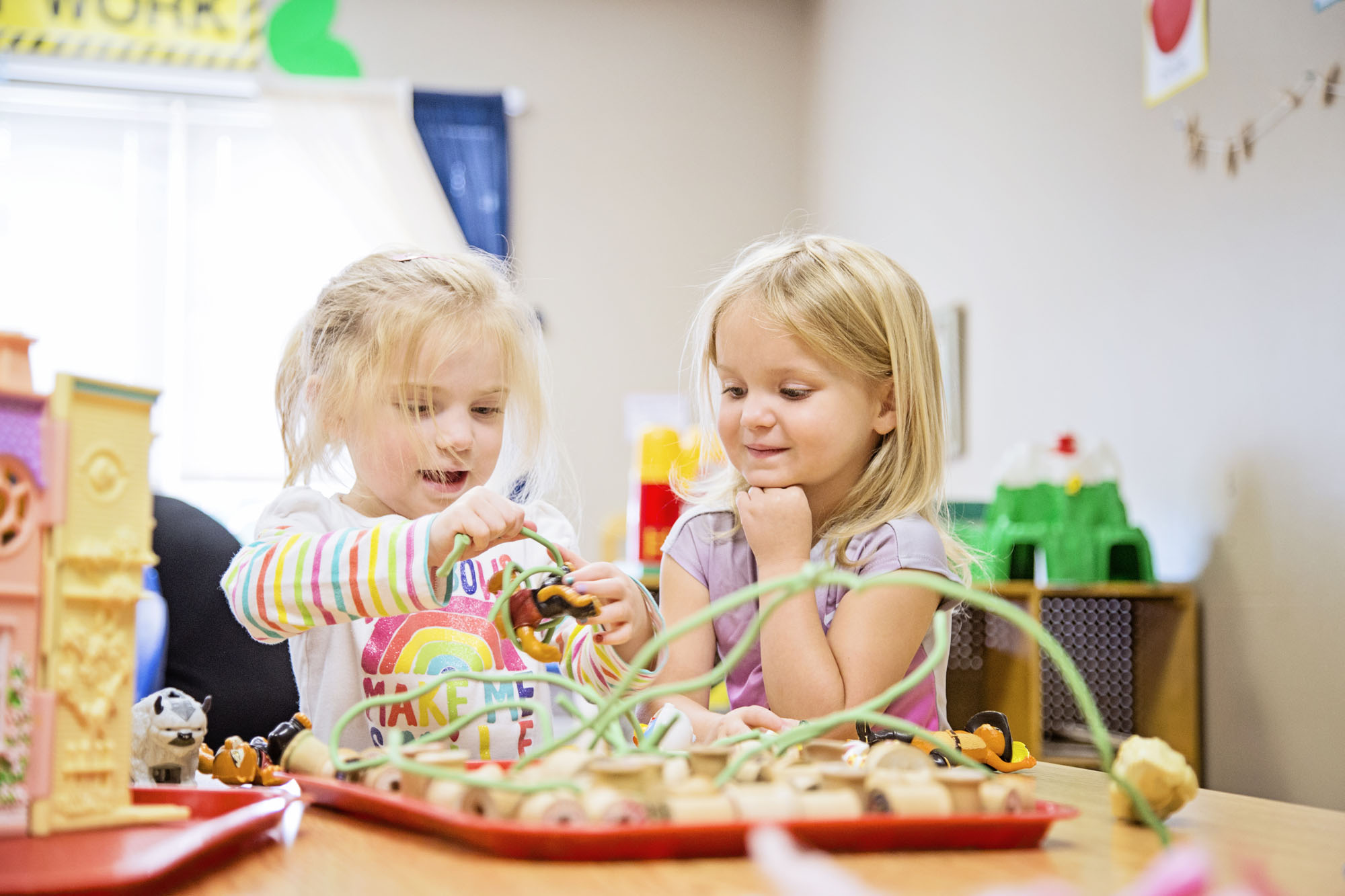Innovative storytelling workshops that inspire students in Private School
The Value of Interactive Tasks in Quality College Education And Learning
Interactive activities play an essential function in elementary school education and learning. They engage trainees and boost learning results. With team jobs and hands-on experiments, trainees experience the product in a practical means. This strategy satisfies diverse learning styles and advertises necessary abilities. However, the advantages extend past academics. Checking out the deeper effect of these tasks discloses their relevance in shaping young learners' futures. What makeovers occur when pupils proactively get involved?
Enhancing Interaction With Interactive Discovering
Although standard training approaches have their advantages, interactive knowing substantially improves trainee interaction in elementary school education. This strategy encourages active involvement, allowing students to immerse themselves in the learning process. By utilizing group activities, hands-on experiments, and technology-driven resources, teachers produce a setting where trainees feel more connected to the material.
Interactive understanding assists in cooperation amongst peers, promoting interaction abilities and synergy. It additionally caters to diverse discovering styles, guaranteeing that aesthetic, acoustic, and kinesthetic learners can all flourish. Pupils are a lot more most likely to retain information when they proactively participate, as opposed to passively receiving understanding.
This vibrant approach not only makes finding out enjoyable however also instills a sense of possession in trainees concerning their instructional trip. As they involve with the material, their curiosity and inspiration to find out rise, laying a solid structure for future academic success.
Establishing Vital Assuming Skills
Interactive knowing not only improves interaction however also functions as a stimulant for creating crucial believing abilities in elementary school students. Via activities such as problem-based understanding, arguments, and hands-on experiments, trainees are motivated to assess info, review various viewpoints, and formulate reasoned final thoughts. These interactive experiences call for trainees to wonder about presumptions, leading them to assume even more deeply about different topics.

Interactive activities often present real-world situations that challenge pupils to apply their understanding creatively. By maneuvering through these obstacles, they discover to determine appropriate info and make informed decisions. This procedure cultivates not only specific crucial thinking but additionally encourages trainees to verbalize their thought procedures, improving their capability to connect effectively. Therefore, interactive discovering settings grow a generation of important thinkers who are better prepared to deal with complicated issues in their future scholastic and specialist endeavors.
Promoting Partnership Among Peers
Fostering cooperation among peers is vital in elementary school education, as it enhances synergy and interaction skills. Participating in team activities helps students develop trust fund and respect for one an additional, preparing for efficient partnership. Analytic together enables pupils to discover from each various other and develop a cumulative approach to obstacles.
Teamwork and Interaction Abilities
Efficient synergy and communication abilities are essential parts of a successful elementary school education and learning. Participating in interactive tasks encourages trainees to team up, share ideas, and address problems together. Such experiences advertise the growth of essential communication capabilities, permitting youngsters to express their ideas clearly and pay attention actively to others. With teamwork, trainees discover to value varied viewpoints, fostering a sense of community and shared obligation. Structured group jobs, whether in academics or innovative tasks, boost peer interactions, educating youngsters just how to bargain duties and solve conflicts. These skills not only add to a favorable classroom atmosphere but additionally prepare trainees for future collaborative ventures in greater education and the office. Generally, teamwork and interaction are fundamental to holistic advancement in elementary school.
Building Trust and Respect
Building trust and regard among peers offers as a cornerstone for effective cooperation in elementary school atmospheres. When students feel valued and respected by their schoolmates, they are a lot more most likely to engage actively in group activities. Interactive tasks, such as group jobs and participating video games, offer chances for students to find out from each other, promoting a sense of neighborhood. This environment urges open communication, allowing pupils to reveal their concepts and viewpoints without worry of judgment. As trust constructs, trainees come to be extra ready to share obligations and sustain each other's knowing. Ultimately, growing an atmosphere of count on and regard improves not just scholastic results yet also social advancement, outfitting students with vital social skills for their future ventures.
Problem-Solving Together
Joint problem-solving engages pupils in vital reasoning and teamwork, necessary skills for their individual and scholastic development. When trainees collaborate to deal with challenges, they discover to connect effectively, respect varied point of views, and utilize each other's strengths. This procedure improves their capacity to analyze problems from various angles and develop creative services. Group activities, such as scientific research experiments or mathematics challenges, advertise energetic engagement and foster a feeling of community. As trainees collaborate, they also develop social abilities, discovering to compromise and work out, which are critical for future interactions. Eventually, analytic with each other grows a helpful discovering setting, encouraging students to take ownership of their education and learning while preparing them click for more for joint endeavors beyond the classroom.
Urging Imagination and Development
Motivating imagination and development in elementary school education can be considerably improved through hands-on learning experiences. These tasks permit trainees to involve directly with products and concepts, fostering imaginative reasoning. In addition, collective team projects can boost diverse concepts and services, further supporting an imaginative atmosphere.
Hands-On Learning Knowledge
A plethora of hands-on knowing experiences significantly boosts creativity and innovation in elementary school education and learning. Involving trainees in useful tasks enables them to use academic knowledge in real-world contexts, cultivating much deeper understanding. By manipulating products and tools, youngsters create critical analytical abilities and learn to assume outside package. These experiences inspire interest and encourage pupils to explore their interests additionally. In addition, hands-on activities can link different topics, connecting science, art, and math in significant ways. This interdisciplinary technique urges pupils to see connections and believe artistically. Ultimately, hands-on understanding experiences support a generation of a fantastic read pioneers, outfitting them with the skills and self-confidence required to tackle future challenges and add to culture in unique ways.
Collaborative Group Projects
Hands-on understanding experiences naturally result in the unification of joint team projects, which play an important function in promoting creative thinking and innovation in elementary school education. These jobs urge students to interact, sharing ideas and point of views, which boosts analytic abilities and crucial thinking. Through collaboration, trainees learn to connect properly and regard diverse viewpoints, necessary abilities for their future. Furthermore, team tasks provide opportunities for pupils to try out various roles, raising their adaptability and confidence. Taking part in this cooperative environment allows them to explore their creative thinking, pressing the limits of typical understanding. Eventually, collaborative team jobs not only enrich the instructional experience yet also prepare pupils for real-world obstacles that need teamwork and innovative reasoning.
Structure Confidence and Independence
As students engage in interactive activities, they usually find chances to build self-confidence and freedom. These activities, whether they involve hands-on tasks, role-playing, or analytic jobs, motivate students to take initiative and share their concepts openly. By getting involved in such experiences, trainees find out to trust their capabilities and choose without counting entirely on support from educators or peers.
Interactive activities cultivate a sense of possession over understanding. When pupils take on difficulties collaboratively or individually, they develop critical assuming skills and durability. This process not just enhances their understanding of the subject however likewise empowers them to take risks in their knowing journey.
As they browse different interactive scenarios, students progressively shed their insecurity, leading the way for increased self-confidence - Grade School. Inevitably, these tasks play a crucial role in nurturing independent and positive students, equipped to face future scholastic and individual challenges
Developing a Favorable Class Setting
While promoting a positive classroom atmosphere is go to these guys necessary for reliable learning, it needs deliberate effort from educators to create a space where trainees really feel risk-free, respected, and engaged. A favorable ambience motivates partnership, enabling pupils to reveal themselves without fear of judgment.
Educators can achieve this by establishing clear assumptions, advertising mutual regard, and recognizing private payments. Integrating interactive activities better boosts engagement, making discovering much more enjoyable and dynamic.
In addition, a nurturing environment supports social-emotional advancement, as trainees discover to navigate relationships and deal with problems. Teachers play a vital function in modeling positive habits and reinforcing a society of generosity and inclusivity.
Frequently Asked Inquiries

Exactly How Can Parents Assistance Interactive Knowing at Home?
Moms and dads can support interactive learning in the house by supplying interesting materials, urging hands-on jobs, incorporating academic video games, cultivating conversations, and creating a nurturing atmosphere that advertises inquisitiveness and expedition in their youngsters's discovering experiences. (Grade School)
What Sorts Of Interactive Activities Are A Lot Of Reliable?
Hands-on tasks, joint video games, role-playing situations, and educational modern technology applications are amongst the most effective interactive activities. These involve students, improve important thinking skills, and advertise team effort, inevitably fostering a much deeper understanding of various subjects.
How Do Interactive Tasks Satisfy Different Knowing Styles?
Interactive activities engage visual, auditory, and kinesthetic students by including varied methods. These activities assist in understanding via hands-on experiences, collaborative discussions, and aesthetic aids, permitting trainees to take in details according to their preferred understanding style.
What Are the Prices Related To Implementing Interactive Activities?

Carrying out interactive activities incurs expenses such as products, training for educators, innovation upgrades, and prospective center modifications. Budget restraints can additionally affect the frequency and selection of activities supplied to pupils in instructional settings.
Exactly How Can Teachers Evaluate the Effect of Interactive Understanding?
Teachers can examine the influence of interactive understanding via monitorings, pupil feedback, performance metrics, and comparative evaluation of examination ratings prior to and after execution, making certain a detailed understanding of engagement and understanding retention enhancements.
With activities such as problem-based understanding, disputes, and hands-on experiments, pupils are urged to assess details, examine various point of views, and develop reasoned conclusions. Interactive tasks often present real-world circumstances that test trainees to use their knowledge artistically. Engaging in interactive tasks urges pupils to team up, share ideas, and solve troubles with each other. Interactive tasks, such as team tasks and participating games, provide possibilities for pupils to discover from one another, fostering a feeling of area. As pupils involve in interactive tasks, they commonly find chances to construct self-confidence and self-reliance.